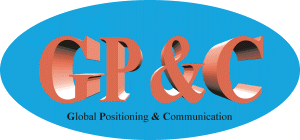

The international standardisation process has again gained significant progress, the ITU-R M.1371 standard for maritime applications is now approved and available from ITU.
This standard defines the performance requirements for AIS equipment, and was used by ITU and IEC in developing technical and test standards. It can be downloaded at no charge as an annex to the MSC 69 final report.
The International Telecommunications Union Sector for Radiocommunications formally adopted this standard on November 1998, and the publication can be downloaded directly from ITU at a cost of 28 SF. However, a revision of this standard intended primarily to clarify design requirements is being prepared by IALA, which will be submitted to ITU-R Working party 8B at its meeting in October 2000. It is expected to be adopted before the end of 2001 as Rec. M.1371-1.
On 27 July 1998, the International Electrotechnical Commission TC80/WG8A AIS working group began work on developing a testing standard for the AIS transponder. This standard will be developed on a fast track, with working group meetings held approximately four times per year. IEC plans to circulate a Committee Draft (CDV) standard on or about August 2000, a Committee Draft for Voting (CDV) version of the standard about December 2000. Normally, it takes one year from submission of a CDV to the published standard. The expected publication date will be December 2001. For more information on US participation in IEC TC80 and this working group, see the USCG IEC webpage.
It is expected that US Federal Communication Commission regulations, and similar regulations in other countries, will require AIS equipment to be designed to ITU-R Rec. M.1371-1 requirements and be certified to IEC 61993-2 requirements. None of these committees are working on AIS symbology, though IEC TC80 WG1 (radar and related equipment) may do so soon.
The following organizations, while not developing standards themselves, have worked with IMO, ITU and IEC in the development of AIS standards.
The International Association of Marine Aids to Navigation and Lighthouse Authorities, headquartered in Saint Germain en Laye in France, has been the primary organization sponsoring and coordinating the development of the Universal Shipborne AIS transponder. In 1996, IALA prepared a recommendation which became the basis for the IMO Performance Standard on AIS. On 8-10 October 1997, at the request of the U.S. and others, IALA hosted a working group of AIS manufacturers and administrations to agree on a standard technology for AIS transponders meeting the requirements of that IMO Performance Standard. The working group completed a draft recommendation, which was submitted by Sweden, on behalf of Finland, Germany, Canada, South Africa, and the United States to the International Telecommunications Union. The IALA AIS Steering Group now meets twice each year to continue support of the development of this system. It is expected that IALA will maintain configuration management of many aspects of AIS design requirements, including binary messages, aids-to-navigation messages, and technical guidelines (e.g. application notes) clarifying AIS design requirements. IALA Committee Reports and Information are available to ALAL members.